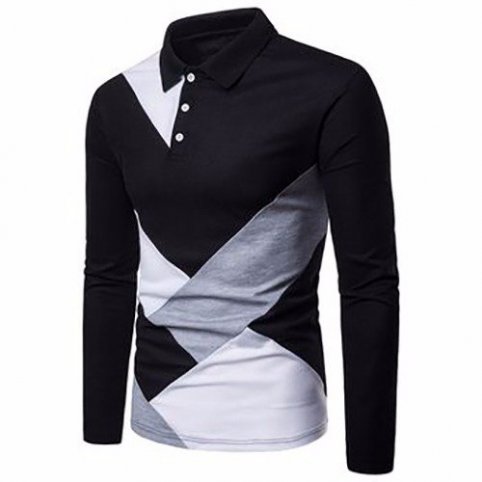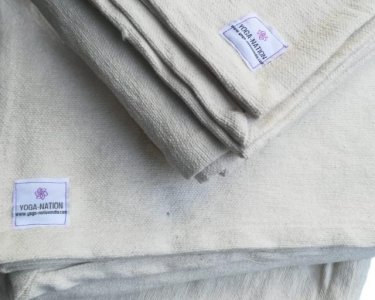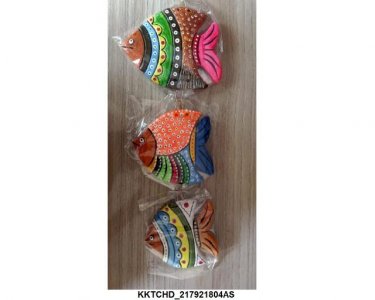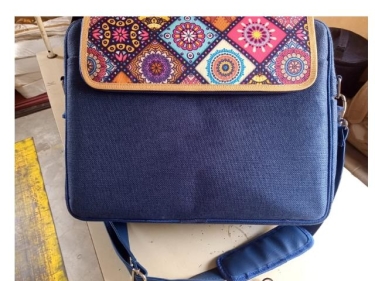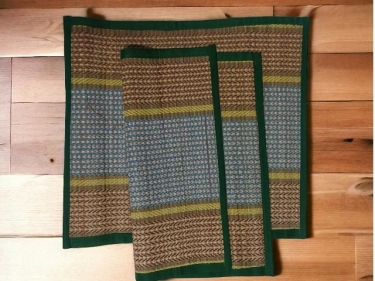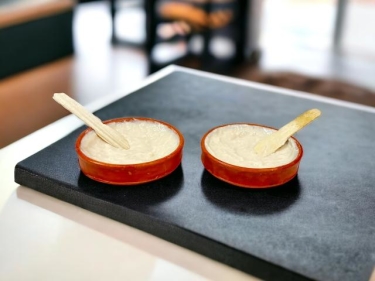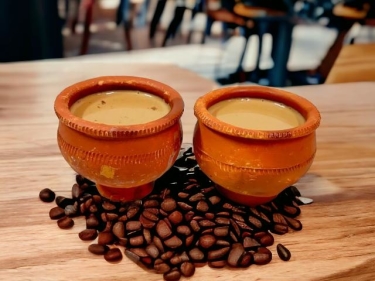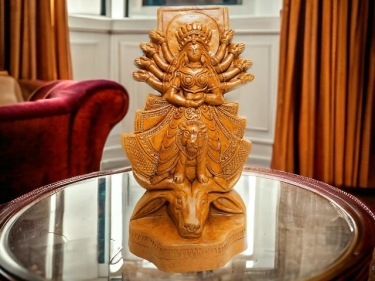Search Results for "maldives" in "Maldives" on Export Portal
Active Filters
-
Keywords:
-
Country:
- Clear all
New Search
Couldn't find the product you want?
Fill out this form to request the product.
Exports

The Maldives commonly described as "The epitome of every tropical paradise fantasy one ever had" is famous for its crystal waters, white milky beaches and a chain of islands located purely in a marine environment. The Maldives is a tropical country in the Indian Ocean composed of 26 coral atolls, which are made up of hundreds of islands. It's known for its beaches, blue lagoons and extensive reefs. The capital, Mal, has a busy fish market, restaurants and shops on Majeedhee Magu and 17th-century Hukuru Miskiy, made of coral stone.
In ancient times the Maldives were renowned for supplies of cowries, coir rope, dried tuna fish, ambergris and Coco de mer. Local and foreign trading ships used to load these products in the Maldives and bring them abroad.
Nowadays Maldives' main export product is fish (accounting that takes over 40 percent of total Maldives' exports). Others include engines and metal scrap. Today the mixed economy of the Maldives is based on the principal activities of tourism, fishing and shipping. Industry in the Maldives consists mainly of garment production, boat building, and handicrafts. It accounts for about 18% of GDP. So there is some boat building and garment manufacturing in the Maldives but no heavy manufacturing. Manufacturing in the Maldives is constrained because the islands are so small and so geographically dispersed that logistics presents a major challenge. Access to energy is also a concern, as is the fragile environment itself, which could be negatively impacted by industrial pollution.
Fishing is the second leading sector in the Maldives, considering that it comes right after tourism industry, which is the largest source of economics of Maldives. The economic reform program by the government in 1989 lifted import quotas and opened some exports to the private sector. Subsequently, it has liberalized regulations to allow more foreign investment. After fishing, two other industries play a very important role when it comes to the economy of Maldives, as well as Maldives trade, Maldives exports and Maldives imports.
The tourism industry has been a boon to the Maldives' traditional handicrafts. In ancient times, the Maldives were renowned for a rope called coir, woven from coconut fibers, and coir mats still a popular Maldivian souvenir today. The town of Rin'budhoo in Dhaalu Atoll is famous for its beautiful gold jewelry, while Hulhudel on the same atoll is just as famous for its silver. Other popular craft items include wooden objects and ceramics lacquered with a tree resin product called laajehun that is highly prized among the Chinese, hand loomed Maldivian cloth, and objects carved from coral and stone.
The Maldives has an active merchant shipping fleet consisting of ten cargo ships, one container vessel and an oil tanker. The government-owned Maldives Shipping Management Ltd is the country's largest shipping company but private companies do most of the Maldives' importing and exporting.
The most recent reports about Maldives trade shows that for Maldives exports, both fish (sea products, frozen and fresh fish) and clothing are the top two commodities with an estimation of $123 million. The current partners for Maldives exports include the United States, the United Kingdom, Sri Lanka, Japan, Thailand, France, Italy, Iran, Germany, the Netherlands and Algeria.
Top Export destinations of Maldives are France, Thailand, United Kingdom, Italy, United States.
Customs requirements of Maldives
Maldives Customs Contacts
Website: http://www.customs.gov.mv/
Email: customsmail@customs.gov.mv
Telephone: +960 3334193
Fax: +960 3322633
The Maldives is a net exporter of goods, with imports accounting for 23% of GDP (2010). The main imported commodities include petroleum products, ships, foodstuffs, clothing, intermediate and capital goods; whilst the main export product of the country is fish.
Import Duty
All cargo imported to Maldives are dutiable, except items brought by passengers for personal use, in non commercial quantities. Import duty is levied on the CIF (Cost +Insurance + Freight) value of the goods. The rate of duty percentage is listed in the Tariff page.
Import Licenses
Imports in commercial quantities have to be accompanied by an Import Trade License issued by the Ministry of Trade and Industries. A temporary license issued for occasional importers.
Temporary Imports
On request, Customs may allow the temporary importation of goods and equipment for trade promotions, scientific research and other professional use. Duration allowed for such importation is 14 days, after which import duty must be paid for them.
Import Procedure
There are two international ports in Maldives, Male' International Airport at Hulhule, and the Male' commercial sea port situated at commercial harbour of the capital Male.
Goods entering the Republic of Maldives must go through four main customs procedures before they can be imported:
- Valuation
- Documentation
- Payment of Duty
- Examination & Release of Cargo.
The speed of these process is mainly dependent on the clarity of the documents submitted by the importer and the amount of information provided in the documents.
Valuation
All commercial imports must have accompanying invoices which are subjected to the Customs invoices valuation process for duty calculation. In this regard, the importer should submit the following documents to the Valuation Section of the Maldives Customs Service.
- Original and three copies of the commercial invoice
- Bill of lading or the Airway Bill
- Packing List
- Bank documents
When the invoice valuation process is completed the importer will be given a copy of the Maldives Customs Service endorsed commercial invoice stipulating the value of the goods sought to be imported as determined by the Maldives Customs Service. Duty for the goods so imported would be levied on the basis of the approved prices.
Documentation
The importer should fill in the Customs Declaration Form based on the Maldives Customs Service endorsed commercial Invoice. The following documents should then be submitted to the Documentation Section of the Maldives Customs Service.
- Maldives Customs Service endorsed commercial invoice
- Two sets of Customs Declaration Forms
These documents will be verified by the Documentation Section and assessed for the duty to be levied on the goods. After ssessment, the importer will be given an endorsed copy of the declaration for the payment of the duty. Upon payment of duty, the cargo is ready for examination.
EDI/DTI Services
Import/Export Documents can be submitted to the Customs through EDI(Electronic Data Interchange) or DTI (Direct Trader Imput). However, only authorized users can access these services.
Examination and Release of Cargo
When the importer requests the Examination Section to examine the goods for clearance, the Maldives Customs Service officers assigned for the examination will inspect them as the final stage in the Customs process, and finally the goods will be released.
Animal products: Meat: In general, meat shipped fresh or frozen requires specified inspection and health certification (e.g., meat inspection certificate) issued by the government of the country of export is required for importation. Meat must be free of filth, and must be deemed fit for consumption by health officials in destination country before release for distribution. Meat which has been processed and packaged in such a way as to prevent spoilage during distribution, is subject to generally applicable requirements for importation of processed foods.
Endangered species: Meat from animals protected under CITES may not be shipped for commercial purposes. In addition, particular countries may prohibit importation of particular species of meat and/or importation of meat from particular countries due to concerns over disease, with such prohibitions varying and subject to change on very short notice. Important: Some countries have additional protected species that are not listed.
Particular countries may prohibit importation of particular species of meat and/or importation of meat from particular countries due to concerns over disease, with such prohibitions varying and subject to change on very short notice.
Transportation: Meat is that is temperature controlled cargo (either chill or freeze) must arrive in the destination country with its specified temperature range maintained throughout the transportation. Meat which arrives out of temperature range, or that was not maintained continuously at specified temperature, or has spoiled as determined by health officials in the country of import, will be condemned, requiring destruction, or else downgraded (e.g., limited to animal consumption, or requiring treatment to kill bacteria before distribution).
Terrorist threats to food supply: Many nations have implemented measures to protect its human and animal food supply from terrorist sabotage. These measures may require pre-importation registration of the supplier, packer and/or supplier, additional supplier documentation and notice of each shipment within a specified time period prior to shipment and/or importation.
Cosmetics: Exporters should be aware that cosmetics are import-regulated in many countries with respect to:
Safety: A typically required import admissibility document is a free sale certificate or equivalent issued by the government or a recognized chamber of commerce in the country of export. Some countries ban use of certain ingredients in cosmetics.
Labeling: Ingredients must typically be listed on label along with safe application and use, known health risks and symptoms which indicate discontinuance of use or medical attention, and general consumer goods labeling requirements (e.g., required language(s), name of manufacturer or distributor and contact information).
Intellectual property: Counterfeit items and/or labeling is against the law and will often result in seizure by customs.
Gray market goods restrictions: Importer may have to provide evidence of right to distribute within country of import and such documentation should be provided before exportation.
For these reasons it is very important for an exporter to check requirements with a prospective importer before concluding the product sale and certainly before shipping product.
Textiles and textile articles to be exported must generally meet the following criteria:
- Sanitary condition: Must be free of filth and insects
- Used textile products may be restricted or prohibited.
Labeling: Varies by import country, but typical requirements for apparel and certain other manufactured products:
- Fiber content
- Origin country
For consumer and general distribution end-items, required language(s), name of manufacturer or distributor and how to contact, care & cleaning instructions.
Sources:
http://www.commonwealthofnations.org/sectors-maldives/business/import_and_export/
https://maldives.visahq.com/customs/#!export-regulations
http://www.slhcmaldives.com/index.php/trade/import-procedure












